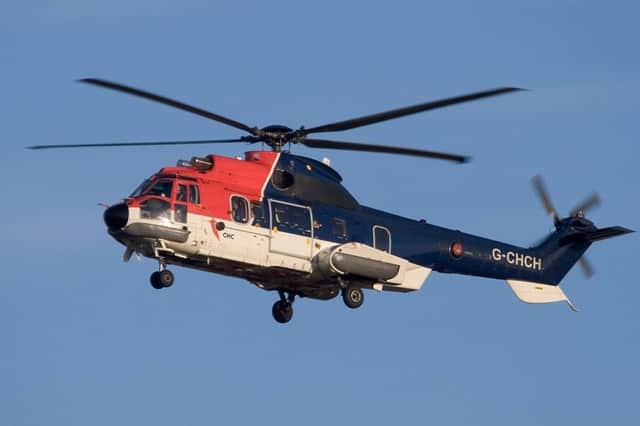Prosecutors get access to Super Puma black box


Lord Jones ruled the Crown Office could have access to the combined voice and flight data recorder (CVFDR) from the Super Puma which crashed two years ago as it approached Sumburgh Airport in Shetland.
But the pilots’ union said it was considering appealing the decision amid concerns over the data being passed to prosecutors before a safety investigation by the Air Accidents Investigation Branch (AAIB) has concluded.
Advertisement
Hide AdAdvertisement
Hide AdThe helicopter, with two crew and 16 passengers, crashed on 23 August 2013 about two miles west of Sumburgh as it was coming in from the Borgsten Dolphin drilling platform 240 miles east of Aberdeen.
Four passengers, Sarah Darnley (45) from Elgin, Gary McCrossan (59) from Inverness, Duncan Munro (46), from Bishop Auckland, and George Allison (57) from Winchester died.
In a judgement issued yesterday, Lord Jones said he would grant an order making the CVFDR available to the Crown Office and police with conditions attached.
The judge said: “The cockpit voice recording and the flight data recording which the lord advocate seeks to recover will provide relevant, accurate and reliable evidence which will enable the Safety and Regulation Group (SARG) to provide an expert opinion of value to assist him in his investigation of the circumstances of the death of the four passengers and his decision whether, and if so against whom, to launch a prosecution.”
The judge said he was satisfied that disclosure in this case would have no adverse domestic or international impact on the current investigation or on any future safety investigation.
The AAIB began an immediate investigation following the crash, but this is not yet concluded, the Court of Session in Edinburgh heard. The AAIB has issued three bulletins, one of which said the wreckage examination and recorded data analysis had not shown any evidence of a technical fault.
Lord Jones was told that 78 hours of flight data and two hours of audio recording was subsequently downloaded. The audio material included communications between the commander and co-pilot, radio transmissions and passenger announcements.
But the judge said such recordings also capture “ambient sounds” which may be important to an investigation, such as a change in engine note.
Advertisement
Hide AdAdvertisement
Hide AdIn a statement, the British Airline Pilots’ Association (BALPA) said: “Finding out exactly what caused an accident and improving safety to stop it happening again should be prioritised over criminal and other types of proceedings.